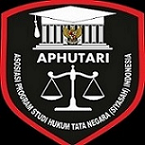Penyadapan Ditinjau Menurut Undang-Undang No. 11 Tahun 2008 dan Hukum Islam
Abstract
The problem in this reseach is tapping, because tapping is one of the stealing activities with or without installing additional devices or devices on the telecommunication network to obtain information either secretly or openly. Wiretapping activities have existed since the first world war which was carried out to maintain national defense and security. Now tapping is carried out to uncover various corruption cases related out state financial losses. The purpose of this study is to determine of electronic information tapping in law number 11 of 2008 and to find out islamic law against the crime of tapping electronic information numer 11 of 2008.The research method used is a qualitative method with the type of library research, the data is mostly taken from books and journals. Including primary journals, namely law no 11 of 2008 on information and electronic transactions.The research results show that the first law on wiretapping was formed because on the basis of the 1995 constitution which states that the right to communicate must be protected, those who violate the the law will be sentenced to 10 years in prison and a maximum fine of Rp. 800,000,000.00 ( eight hundred million rupiah). Second, in the law of tajassus, the criminal act of tajassus committed by muslims against other muslims will be subject to ta`zir punishment and if is carried out by infidels harby to muslims, it will be punished by death.
Keywords
Full Text:
PDFReferences
Referensi a. Sumber Buku Yopi Gunawan, “Penyadapan Dalam Hukum Positif”, Bandung: Nuansa Auliya,2013. Arif Ishartadi, “Kumpulan Undang-Undang Informasi Elektronik dan Transaksi Elektronik (ITE)”, Yogyakarta: Penerbit Politika Publishing, 2019. Reda Manthovani, “penyadapan VS Privasi”, Jakarta: Pt Bhuana Ilmu Populer Kelompok Gramedia, 2015. b. Sumber Jurnal Dermin Dlimunthe. "Proses Pembentukan Undang-Undang Menurut UU No. 12 Tahun 2011 Tentang Pembentukan Peraturan Perundang-Undangan". JurnalAl-Maqasid: Jurnal Ilmu Kesyariahan Dan Keperdataan, vol 4, no 1. 2018. Ikhwanuddin Harahap. "Memahami Urgensi Perbedaan Mazhab Dalam Kontruksi Hukum Islam Di Era Millenial". Jurnal Al- Maqasid: Jurnal Ilmu Kesyariahan Dan Keperdataan. vol 5, no. 1 2019. Ikhwanuddin Harahap," Menelisik Asas Keadilan dan Kesetaraan Gender dalam Undang-undang Nomor 3 Tahun 2004 Tentang Penghapusan Kekerasan dalam Rumah Tangga Persfektif Islam". Yurisprudentia: Jurnal Hukum Ekonomi, vol, 2 no. 1, 2016. Hasiah, "Cadar dan Aturan Berpakaian Dalam Persfektif Syariah Islam". Jurnal El-Qanuniy: Jurnal Ilmu-Ilmu Kesyariahan Dan Pranata Sosial. vol 5, no. 2, 2019 1. Fatahuddin Aziz Siregar, "Antara Hukum Islam Dan Adat; Sistem Baru Pembagian Harta Warisan". Jurnal El- Qanuniy: Jurnal Ilmu-Ilmu Kesyariahan Dan Pranata Sosial. vol 5, no. 2 2019. Fatahuddin Aziz Siregar, "Formulasi Hukum Islam suatu Kajian Implikasi Lafaz Wadih Dan Mubham". Jurnal El-Qanuniy:Jurnal Ilmu-Ilmu Kesyariahan Dan Pranata Sosial. vol 4, no. 2. 2018. Sawaluddin Siregar, "Munâsabât Al-Qur’an Perspektif Burhanuddin Al-Biqâ’i" Jurnal. Yurispredentia: Jurnal Hukum Ekonomi,vol 4, no.1 2018. Syapar Alim Siregar, "Nasakh Wa Mansukh". Jurnal Al-Maqasid: Jurnal Ilmu Kesyariahan Dan Keperdataan 6, no. 1, 2020.
DOI: https://doi.org/10.24952/el-thawalib.v3i5.6196
Refbacks
- There are currently no refbacks.









Editorial Office Board :
Kampus UIN Syekh Ali Hasan Ahmad Addary Padangsidimpuan
Jl. T Rizal Nurdin No.Km 4, RW.5, Sihitang, Padangsidimpuan Tenggara, Kota Padang Sidempuan, Sumatera Utara 22733
 Jurnal El-Thawalib is licensed under a Creative Commons Attribution-ShareAlike 4.0 International License.
Jurnal El-Thawalib is licensed under a Creative Commons Attribution-ShareAlike 4.0 International License.
View My Stats






